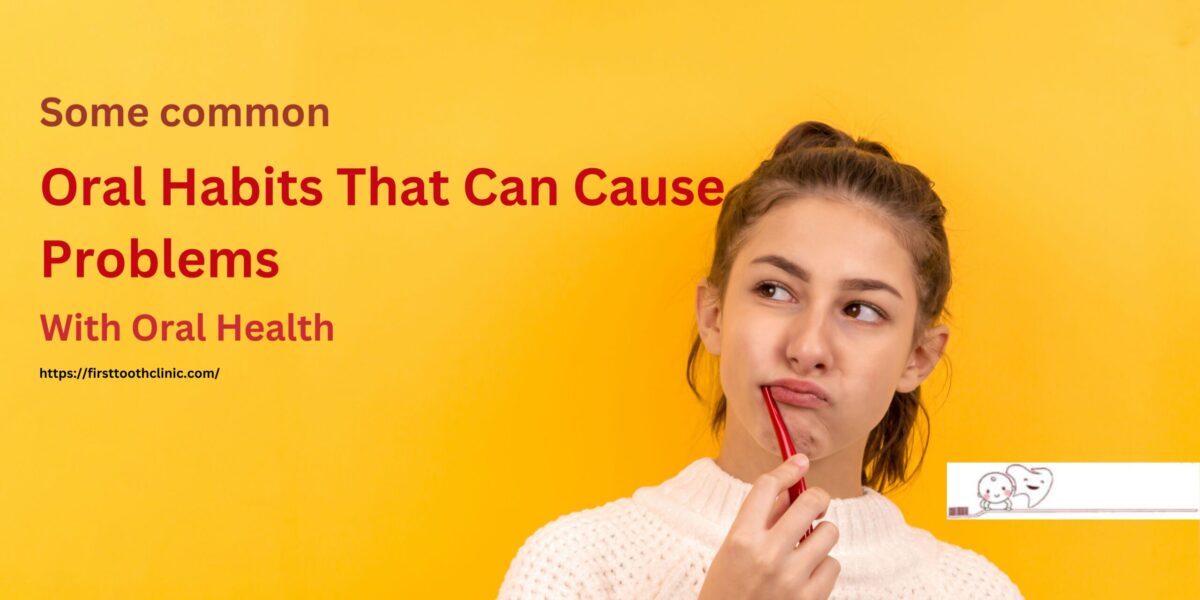Oral habits are behaviors that involve the mouth and teeth, and can include a wide range of activities such as sucking on a thumb, biting nails, grinding or clenching teeth, tongue thrusting, and mouth breathing. Some oral habits are more common in children and may be seen as a normal part of development, while others can develop in people of any age.
Some common oral habits that can cause problems with oral health include:
- Thumb sucking: This is a common habit that is often seen in young children. It can provide comfort and security, but if it persists beyond a certain age, it can cause problems with tooth alignment and jaw development.
- Nail biting: This is a habit that is often auxiliary with stress or anxiety. It can lead to damaged nails, infection, and problems with tooth alignment.
- Lip biting: Similar to nail biting, lip biting can be a sign of stress or anxiety. It can cause irritation and sores on the lips and surrounding skin.
- Grinding or clenching teeth (Bruxism): This is a habit that often occurs at night and can lead to tooth damage and jaw pain.
- Tongue Thrusting: This is a habit that involves pushing the tongue forward against the teeth, which can lead to problems with tooth alignment.
- Mouth Breathing: This habit involves breathing through the mouth instead of the nose, which can lead to dry mouth and other problems.
Oral habits are important for both children and adults
Children need to brush their teeth twice a day, as well as after eating or drinking. Parents should also tell their children to brush their teeth at least twice a day. Brushing may also be helpful for preventing dental caries in children.
Oral hygiene is very important for kids. Brushing your child’s teeth regularly is a great way to prevent dental caries in children.
It is recommended that you brush your child’s teeth twice a day
starting when they are about two years old and continuing until the age of six years old. You can use a small soft-bristled toothbrush to help with this.
- It is best to do it yourself rather than letting your child do it.
- Also remember to teach kids how to do this at an early age.
- So they understand what they need to do and don’t forget!
You can get more information on oral health from your local dentist or a dental professional if you would like more information regarding this topic and to know how Dental care for school age going kids.
If you or someone you know has an oral habit that is causing issues, it is a good idea to speak with a dental professional or other healthcare provider for advice on how to address the habit.
Hope people find this article useful!

